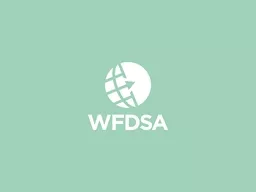PDF-(BOOS)-Ethics in the Workplace
Author : courtneycollett | Published Date : 2022-06-28
Energize an introductory ethics course with ETHICS IN THE WORKPLACE 3e a text that combines a strong foundation in classic and contemporary theory examples and analysis
Presentation Embed Code
Download Presentation
Download Presentation The PPT/PDF document "(BOOS)-Ethics in the Workplace" is the property of its rightful owner. Permission is granted to download and print the materials on this website for personal, non-commercial use only, and to display it on your personal computer provided you do not modify the materials and that you retain all copyright notices contained in the materials. By downloading content from our website, you accept the terms of this agreement.
(BOOS)-Ethics in the Workplace: Transcript
Energize an introductory ethics course with ETHICS IN THE WORKPLACE 3e a text that combines a strong foundation in classic and contemporary theory examples and analysis drawn from the workplace ethical decisionmaking models and a constant focus on selfreflection and moral reasoning Learning becomes interactive with this completely revised edition that urges users to examine ethical situations in the workplace through the lens of ethical decisionmaking models ETHICS IN THE WORKPLACE 3e bridges the gap between theory and reality by focusing on ethics in the workplace and offering realworld examples of ethical situations workers face ETHICS IN THE WORKPLACE 3e users explore current American values and establish models by which to analyze them as they apply to accounting finance marketing human resource and management dilemmas Drawing from news headlines and cases based on wellknown people theres never a shortage of relevant topics and applications The text is a balanced combination of theory examples role plays class discussion and selfreflection activities that make studying ethics rewarding interesting and effective. Debra Scott, MSN, RN, FRE. Executive Director . Nevada State Board of Nursing. Learning Objectives. Define incivility and civility. Define workplace conflict. Explore strategies to enhance civility and encourage a healthy and productive work atmosphere. Module from SIOP. Personality in the Workplace. Personality. includes the unique ways people think, act, and behave. Personality tends to be fairly. . stable. over the lifespan, though it can be influenced by situations. People for People 2012. workplace and the community. A survey of 3,841 residents of a major Canadian metropolitan city conducted in the spring of 2012 found:. 1/3 of respondents found it hard to make new friends. Considering Communication Models. Agenda. Discuss Ethics & Ethical Dilemmas. Discuss . Copyright Issues . Watch & . d. iscuss.... http. ://cyberlaw.stanford.edu/blog/2007/03/fairy-use-. tale. Marilyn Shaw. Department of Communication Studies. University of Northern Iowa. Examples. After the West Des Moines Valley High School principal decreed that there be no grinding at school dances, fake Twitter accounts were created pretending to be him, saying lewd and . UCLA Extension. 859.50 Management 1.2 CEU . Winter Quarter. Saturday, March 8 and 15, 2014 . Reg# Z6749CA. . 1. Instructor . . . . Paul Falcone . www.PaulFalconeHR.com. . Paul@PaulFalconeHR.com. . do. ethics” (CFE: Crossing the Line: Ethical Lessons for Financial Professionals, 1998).. Presented by:. Billy Morehead, Ph.D., CGFM, CPA, CPM. Associate Professor of Accountancy. Mississippi College. Mikko Salonen. IOF Council . Member. Why are we introducing the IOF Code of Ethics?. We are committed to the highest standards of conduct in sport administration and competition. . On our way to Olympics we are aligning our policies with the IOC. Training and Legal Duties. [Insert Presenter Name]. [Company Name]. [Date]. . Training overview. Workers Compensation Act. Recognizing workplace bullying and harassment. Employer obligations. Responding . Can I Do That?. Susan Willeke. Education Coordinator. Ohio Ethics Law. Ohio Ethics Law: The Foundation. ASPIRE – to a higher standard of professional conduct. Ohio Ethics Law: What?. Created New Ethics Laws. La gamme de thé MORPHEE vise toute générations recherchant le sommeil paisible tant désiré et non procuré par tout types de médicaments. Essentiellement composé de feuille de morphine, ce thé vous assurera d’un rétablissement digne d’un voyage sur . DSA. Code of Ethics.. Contents. INTRODUCTION. PROMISE TO CONSUMERS. PROMISE TO DIRECT SELLERS. PROMISE TO THE COMPANIES. KEY PROVISIONS. DSA Code of Ethics.. WFDSA Overview. Founded in 1978. Global non-governmental voluntary organization. Theories and approaches to Ethics. Ethics and Culture/Religion. Arguing Ethics. Threats to ethics and ethical problems in knowledge. Under the influence of ethics—. ’wrong’ . ethics, ethics in history.. Morning Session. This Careers Preparation National Center product was funded by a National Centers of Academic Excellence in Cybersecurity grant (H98230-22-1-0329), which is part of the National Security Agency..
Download Document
Here is the link to download the presentation.
"(BOOS)-Ethics in the Workplace"The content belongs to its owner. You may download and print it for personal use, without modification, and keep all copyright notices. By downloading, you agree to these terms.
Related Documents














